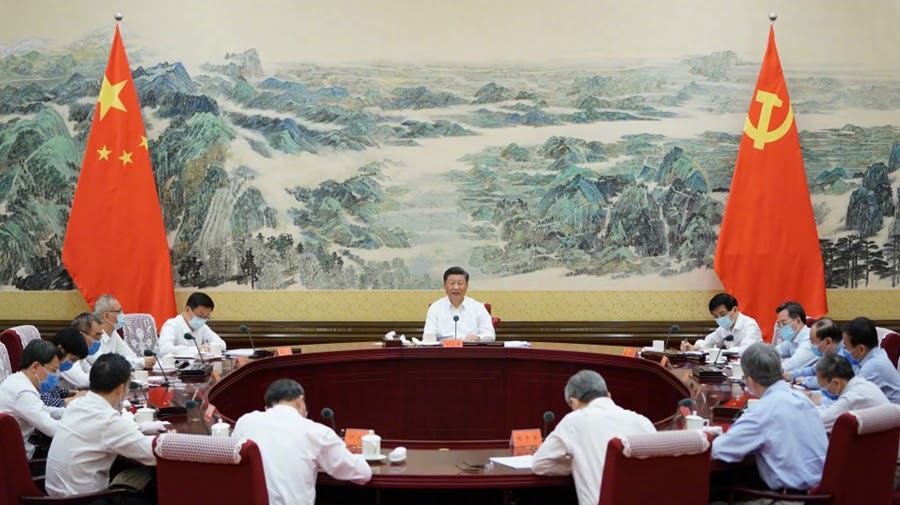Xi says China must develop domestic market and tech to withstand external shocks
Chinese leader Xi Jinping chaired a symposium on economic and social work, where he reemphasized a “dual circulation” model for development and outlined the necessity of “achieving breakthroughs” in core technologies.

“The world is undergoing profound changes unseen in a century, which are being accelerated by the COVID-19 pandemic,” Chinese leader Xí Jìnpíng 习近平 said at a symposium on economic and social work in Beijing on August 24 (English, Chinese).
How should China adapt to a turbulent world? Xi’s answer: “Dual circulation” (双循环 shuāng xúnhuán), a concept that was introduced by a Politburo Standing Committee meeting on May 14 (link in Chinese), and that Xi reemphasized in new remarks (in Chinese).
Does it mean juicing the consumer economy?
- The exact meaning and implications of “dual circulation” is the subject of considerable debate among economists right now, and a jargony 6,000-character elaboration of the concept in the Economic Daily on August 19 (in Chinese) isn’t much help.
- The literal meaning of the term is that one “circulation” is the domestic Chinese market, and another “circulation” is the international market, both made-in-China goods for exports and China as a growing import market.
- Michael Pettis, a finance professor at Peking University, writes in the Financial Times today that Beijing has been trying to “rebalance” its economy to rely more on domestic demand “since at least 2007,” but that the “dual circulation” theory has an “internal contradiction.” For China to increase its domestic market capacity, he writes, it needs to divert more money to households, which would in turn make Chinese exports less competitive.
- A one-sentence summary of dual circulation, from the economic consultancy Trivium: It is “all about ensuring ‘development security,’ which means making the economy less vulnerable to external shocks.”
The second message from Xi at Monday’s symposium is more straightforward: That China should push to develop “breakthroughs in key and core technologies as soon as possible.” After the U.S. Commerce Department last week issued its most expansive restrictions on Huawei yet, in a move that is widely perceived as an existential threat to the company, this is a must for Beijing.
- However, Wuhan Hongxin Semiconductor Manufacturing (HSMC), one of China’s largest chipmakers, “faces the risk of never getting off the ground due to a major cash shortfall,” Caixin reports. The company’s troubles apparently stem from a “dispute…between its owners and one of the engineers helping to build it.”
More to read on China’s economic strategy and future:
- Caixin insight: ‘Dual circulation’ under the spotlight ahead of 14th Five-Year Plan / Caixin (paywall)
- China to use Yangtze River Delta development to showcase ‘dual circulation’ economic strategy / SCMP
- China’s economy is bouncing back — and gaining ground on the U.S. / WSJ (paywall)
- PBOC’s Yi urges China banks to support smaller companies / Bloomberg (porous paywall)
- China banks hire tens of thousands in latest rescue mission / Bloomberg (porous paywall)






